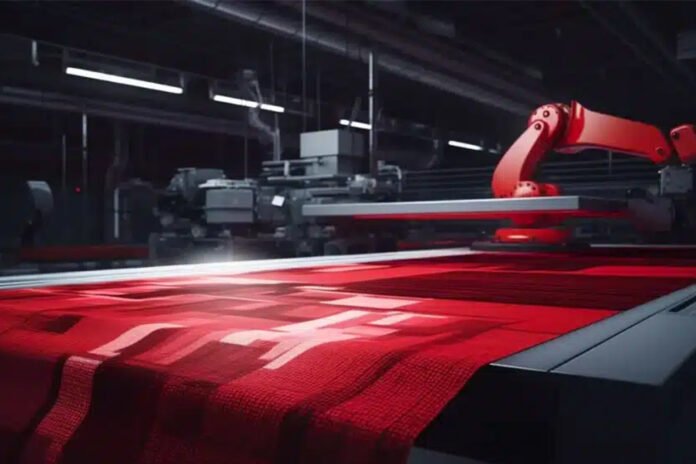Inspired by Nvidia CEO Jensen Huang’s vision of “AI factories” that turn raw data into intelligence, researchers in Taiwan are bringing artificial intelligence directly to the fabric floor. The National Yang Ming Chiao Tung University (NYCU), in partnership with Fu Hsun Fiber Industries, has developed FabGoalie AI — an AI-driven defect detection system that is transforming textile quality control from a manual to a data-driven process.
Launched in October 2025, the turnkey system integrates specialized hardware and a user-friendly GUI for seamless deployment in production lines. Using a fully convolutional neural network, FabGoalie AI identifies and classifies over ten common fabric defects — including oil stains, broken yarns, and creases — in real time. A color consistency module further ensures uniform dyeing across the fabric width.
Equipped with seven cameras and optical marking tools, the system can inspect up to 30 meters per minute, supporting roll-to-roll operations. Engineers enhanced its learning through data augmentation, overcoming the challenge of limited defect samples — a common barrier in industrial AI training.
Unlike traditional pattern-matching systems, FabGoalie AI is field-tested for real-world usability. Its mobile-optimized interface allows instant reporting, QR-linked dashboards, and multilingual access. A built-in penalty scoring system quantifies defect severity, enabling targeted interventions and reducing waste.
Looking ahead, NYCU and Fu Hsun plan multi-site deployment to expose the model to diverse materials and defect types, further refining its precision. As textiles enter the AI era, FabGoalie AI demonstrates how smart inspection systems can weave intelligence, quality, and sustainability into the fabric of manufacturing.



